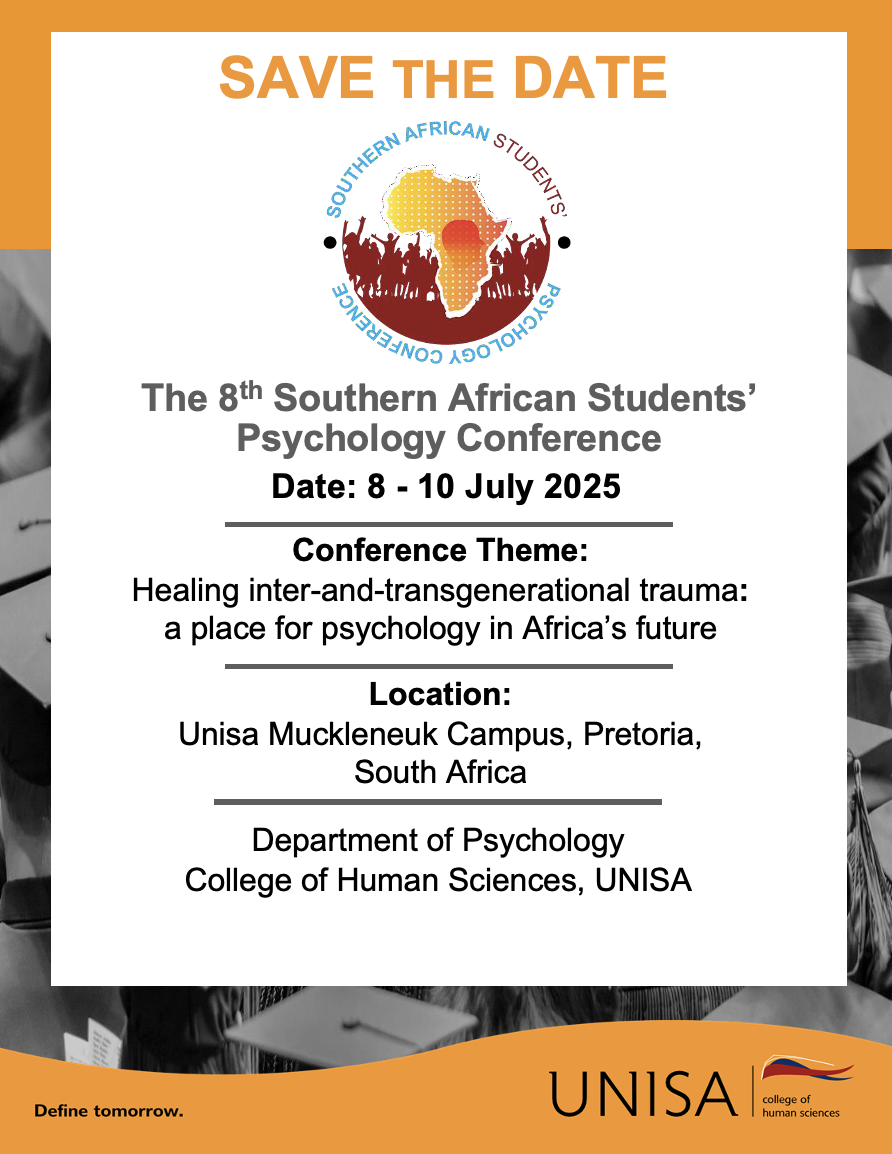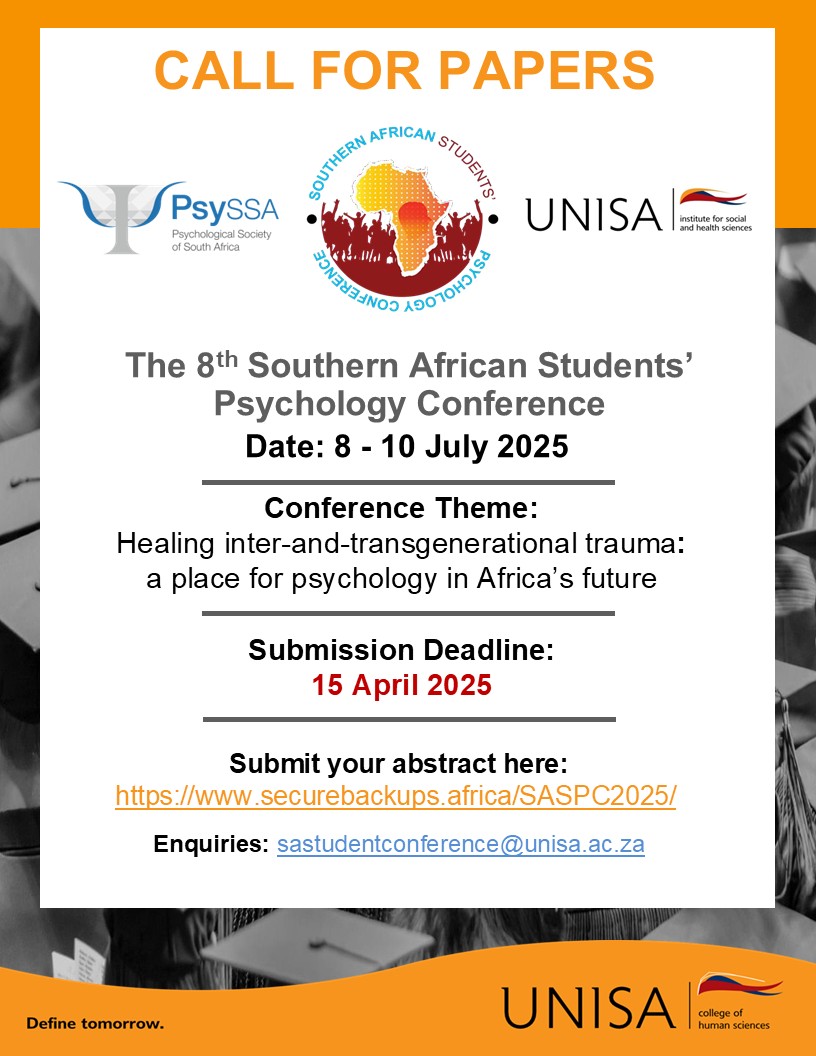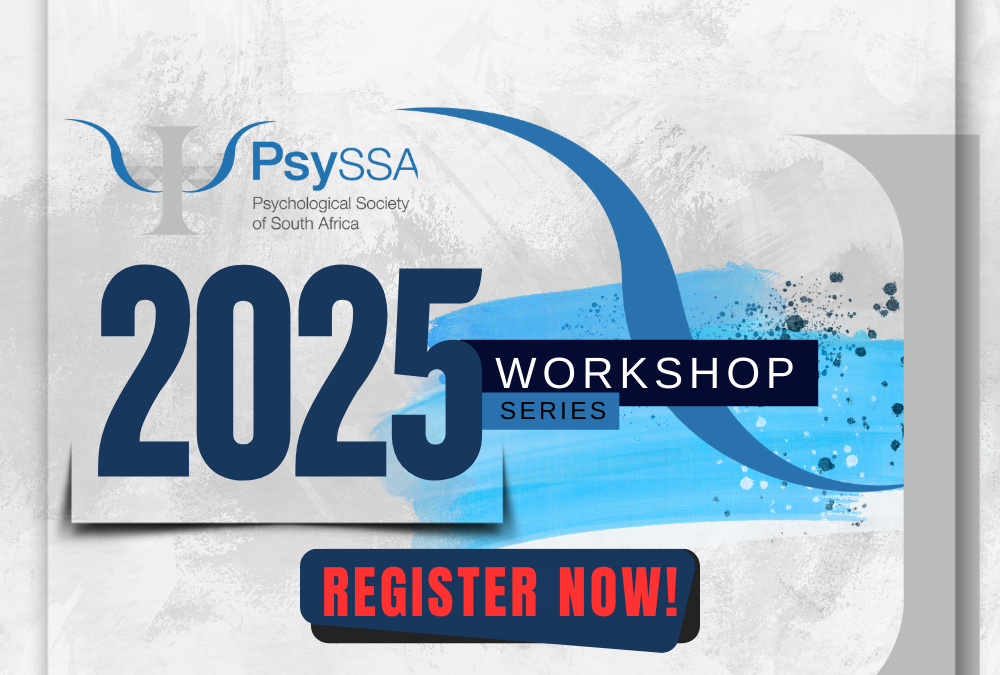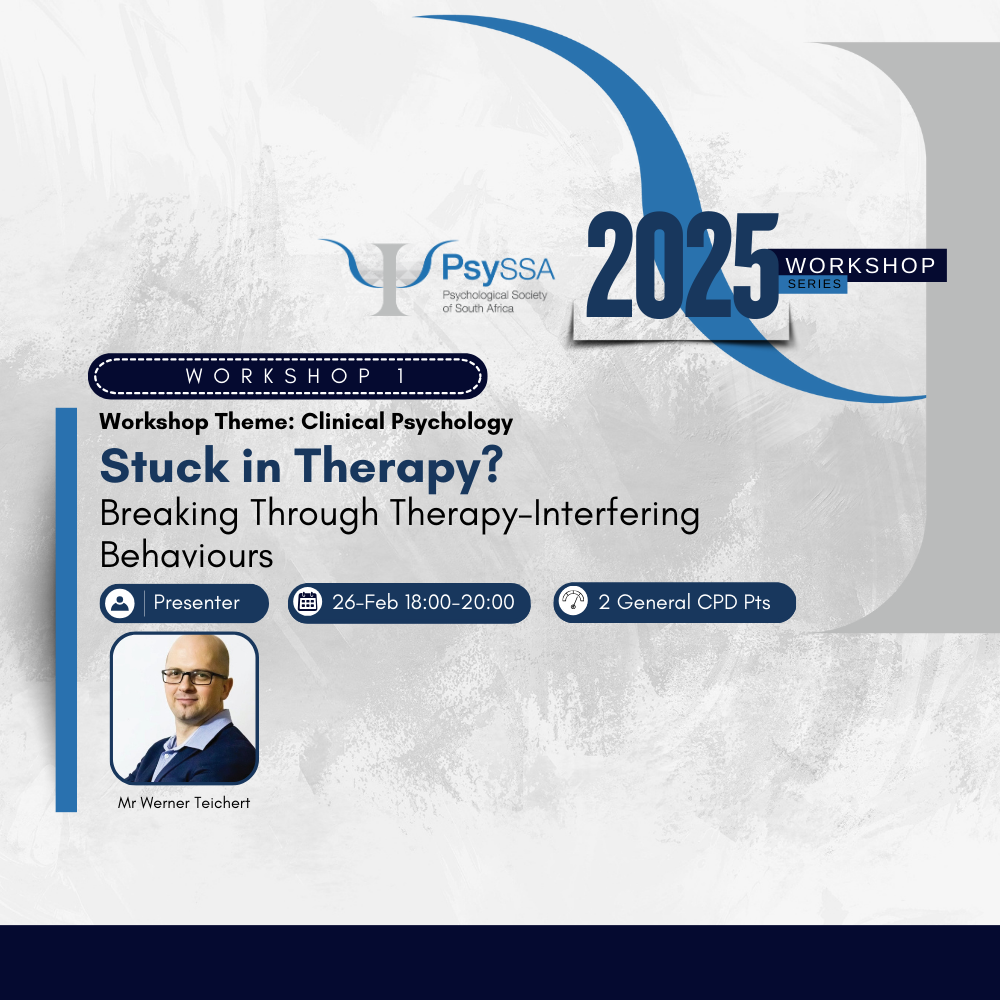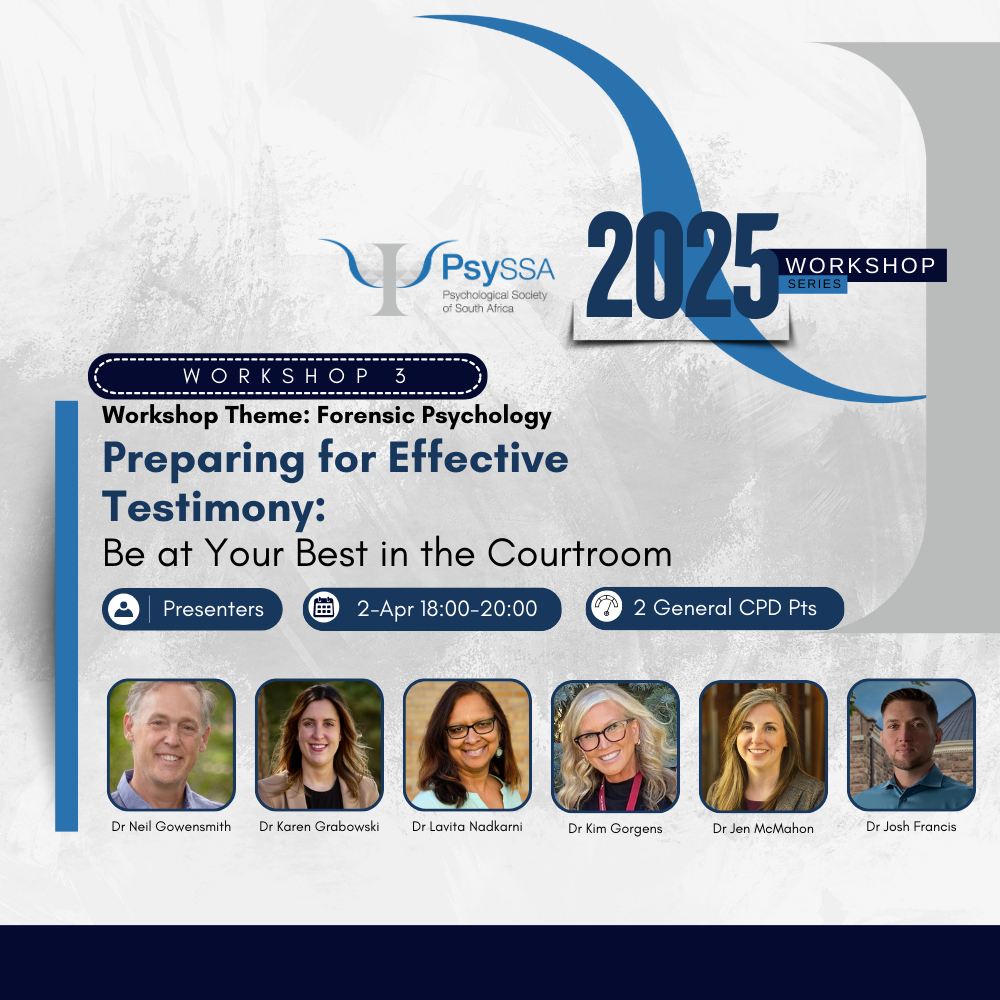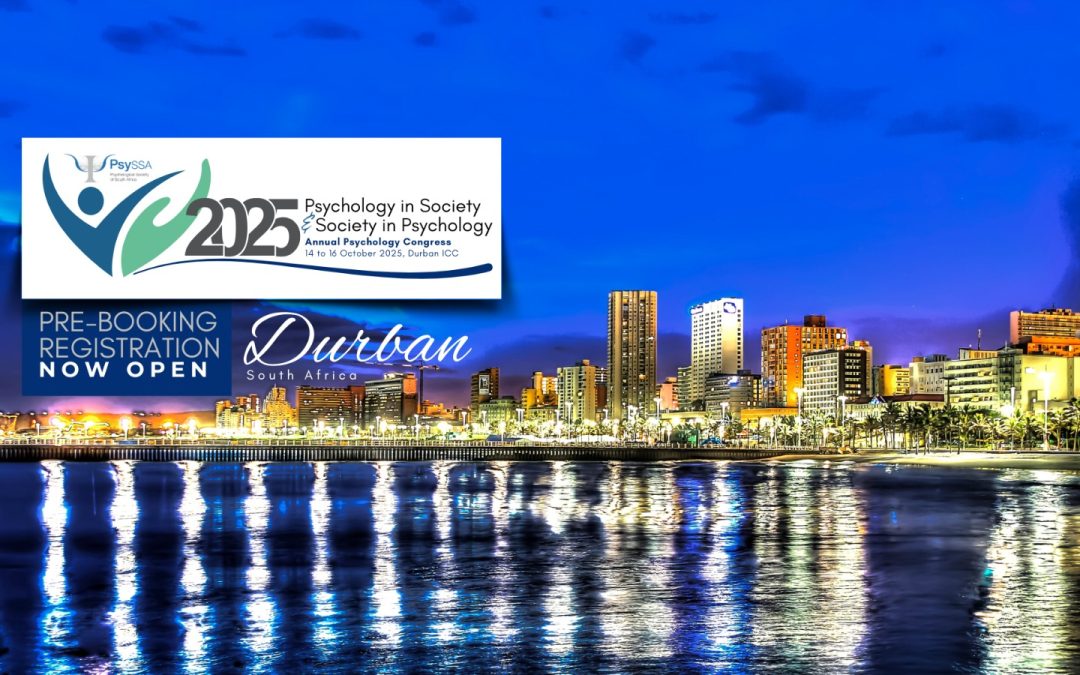
Pre-Booking Registration Now Open – PsySSA Annual Psychology Congress 2025
Congress Pre-Booking Registration Now Open!
We are delighted to inform you that registration for the PsySSA Annual Psychology Congress 2025 is now open!
The Congress will be held at Durban ICC, in Durban, South Africa from the 14th to 16th October 2025.
This year’s Congress, themed “Psychology in Society and Society in Psychology,” will explore the vital relationship between psychology and the world we live in. We will engage in thought-provoking discussions on how psychology influences societal change and how societal dynamics shape psychological research, practice, and teaching.
Join us as we examine psychology’s role in addressing critical issues such as mental health, social justice, community empowerment, and the evolving impact of artificial intelligence on human behavior and society. Expect insightful presentations, cutting-edge research, and a platform to exchange ideas with leading professionals in the field.
Take advantage of discounted rates by registering for Pre-Booking. Don’t miss this chance to save. Deadline for Pre-Booking is 30 April 2024.
Secure your spot today!








